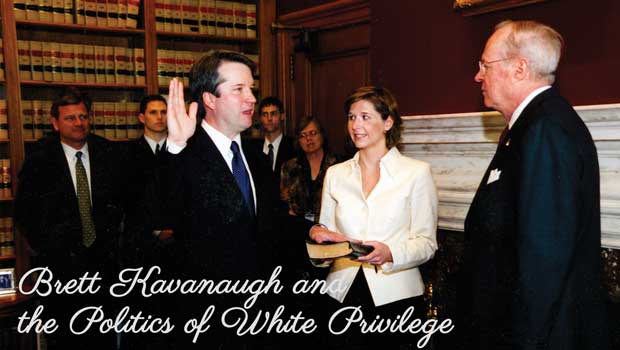In 1787, delegates to the Constitutional Convention gathered in what was to become known as Independence Hall in Philadelphia to discuss the division of power between the executive and legislative branches of the United States government. From the spirited debates of the Constitutional Convention, the importance of a federal judiciary emerged, laying the groundwork for a third branch of the federal government. Article III of the U.S. Constitution in 1789 established the Supreme Court of the United States while the First United States Congress, meeting in Federal Hall in New York City, passed the Judiciary Act of 1789 that detailed the role, meeting place, and operational procedure of the newly created Federal Court. On February 2 through 10, 1790, the inaugural session of the Supreme Court convened in New York City’s Royal Exchange Building. The building doubled at the time as a covered marketplace. When the capital of the country was permanently moved from Philadelphia to Washington, DC in December 1800, the Supreme Court and the rest of the federal government found a permanent home in the newly-created national capital.
Unlike members of the executive and legislative branches of the federal government, Supreme Court justices are nominated by the president and serve for life. The idea was that if the justices were not required to run for office, partisan influences and considerations would not affect their judicial rulings. The reality of this moral decision proved hollow almost from the very beginning of the Supreme Court. Associate Justice Samuel Chase, nominated by President George Washington, served on the Supreme Court from 1796 until his death in 1811. Chase was a member of America’s first political party, the Federalist Party. This party existed from the 1790s to 1816 and was considered pro-administration, socially conservative, and favored national over state governments. President Thomas Jefferson and his Republican allies targeted Chase for removal from the Supreme Court in 1804 for “acting in a partisan manner.” Jefferson and the Republicans in Congress wanted to minimize the influence of the Federalist Party, particularly in the judicial arena, but their thinly-veiled assault on Associate Justice Chase resulted in his impeachment by the United States House of Representatives in 1804. The U.S. Senate acquitted Chase, and he continued as an associate justice until his death.
Partisan Politics and the Court
Partisan politics have tainted the presidential nomination and congressional approval of future Supreme Court justices since the inception of the institution. To date, there have been 114 Supreme Court justices in our nation’s history and few, if any, have reached the bench untouched by considerations by presidents and Congress of their future impact on major social policy issues confronting the nation. Supreme Court justices are nominated and approved primarily based on the projection by the president and the majority party in Congress that the nominee will provide judicial reinforcement of their partisan agendas. A case in point is Associate Justice James Clark McReynolds. McReynolds was nominated to the Court by President Woodrow Wilson and served from 1914 until he retired in 1941. McReynolds was known as a bigot who spewed toxic vitriol mostly against Jews but also against Blacks. President Wilson was fundamentally an academic, an efficient administrator, and a racist. During his two terms as president, 1913-1921, Wilson transformed Washington, D.C. into one of the most segregated, racist cities in the country. In the racist McReynolds, Wilson found a kindred spirit. But unlike Wilson, McReynolds did nothing to disguise his animosity towards Jews and Blacks. During his 27 years as an associate justice on the Supreme Court, McReynolds refused to stand beside Associate Justice Lewis Brandeis who was Jewish, or to listen to a woman present a legal case. McReynolds relished his self-appointed role as the Court’s chief adversary against the jobs creation programs of the New Deal of Wilson’s predecessor, Franklin Delano Roosevelt.
The fifth Chief Justice of the Supreme Court was Roger Taney, a former Federalist who switched to the Democratic Party. After supporting the successful presidential bids of Andrew Jackson in 1824 and 1828, Taney was appointed in 1831 by President Jackson as U.S. Attorney General and as Chief Justice of the Supreme Court in 1835. Jackson is recognized for his slaughter and persecution of Native Americans and as a slave owner who brutally beat his slaves, owning at least 150 slaves and co-owning with his son an additional 51. Taney’s accomplished judicial career was overshadowed by his leading role in the 1857 Dred Scott decision. He wanted to resolve the issue of slavery according to his own views, that the government was obligated to uphold and defend the institution of slavery. Dred Scott was an enslaved Missouri Black who made the legal claim in 1856 that he had attained his emancipation in the 1830s by living with another enslaver in the free state of Illinois and in a section of the Louisiana Territory that was exempt from slavery due to the Missouri Compromise. The Missouri Supreme Court overturned the lower court’s ruling that Scott was a free man. The Supreme Court of the United States accepted the case on appeal and ruled against Scott, that having lived in a free state and territory did not accord him his freedom, and that as an African slave, he was not a citizen and could not sue in federal court. The majority opinion, written by Chief Justice Taney stipulated that African Americans could never become citizens, and that “They had for more than a century been regarded as beings of an inferior order, and altogether unfit to associate with the white race either in social or political relations, and so far inferior that they had no rights which the white man was bound to respect, and that the negro might justly and lawfully be reduced to slavery for his benefit. He was bought and sold and treated as an ordinary article of merchandise and traffic whenever a profit could be made by it.” This was the overtly racist view of both Jackson and Taney.
Past opinions and attitudes have never been exact predictors of how Supreme Court justice nominees will rule in the future, but all presidents have attempted to replace vacancies on the high court with men and women who are most likely to reflect their core values and views on topical issues of the day. For 180 years, only white male Protestants served on the Supreme Court of the United States. In the 229-year history of the Supreme Court, only four women have served on this august body— Sandra Day O’Connor, appointed by President Ronald Reagan in 1981; Ruth Bader Ginsburg, appointed by President Bill Clinton in 1993; Sonia Sotomayor, the first Supreme Court Justice of Latina descent, appointed by President Barak Obama in 2009; and Elena Kagan, also nominated by President Obama in 2010. It was not until 1967 that President Lyndon Johnson appointed the first African American Supreme Court Justice, Thurgood Marshall. Marshall, a distinguished and tireless civil rights attorney before his serving on the highest court in the land, was an associate justice of the Supreme Court from 1967 until 1991. The only other African American to serve as a Supreme Court Justice is Clarence Thomas, appointed by President H.W. Bush in 1991 after the retirement of Thurgood Marshall. Thomas is a conservative who rarely asks questions or otherwise speaks during sessions. He is the longest-serving current associate justice with over 27 years on the bench.
The Nomination and Confirmation of Brett Kavanaugh
In July 2018, Donald Trump nominated Brett Kavanaugh to become an associate justice of the Supreme Court. Kavanaugh, a well-respected conservative lawyer served from 2006 as a U.S. court of appeals judge for the District of Columbia circuit. The senate confirmed Kavanaugh in October of 2018 to become an associate justice of the Supreme Court. Kavanaugh is a member of the Federalist Society for Law and Public Policy Studies. The Federalist Society was formed in 1982 at University of Chicago Law School, Harvard Law School, and Yale Law School, to challenge what its members claimed to be American liberal ideology prevailing in law schools. The Federalist Society vets potential conservative candidates for federal judicial appointments and submits its approved list to the president. The list of Supreme Court justices whose names the group submitted for presidential consideration includes Supreme Court Chief Justice John Roberts, Supreme Court Justice Samuel Alito, Supreme Court Justice Clarence Thomas, and Supreme Court Justice Brett Kavanaugh. Kavanaugh and Trump share more than a penchant for an unregulated free enterprise system of economics. At least 13 women have accused President Trump of sexual harassment or sexual assault, all alleged to have taken place before his presidency. He is also known to have engaged in extramarital sexual encounters, and to have paid hundreds of thousands in hush money to at least two women to conceal these affairs, with allegations of hush money paid to additional women. Regarding Kavanaugh, Dr. Christine Blasey Ford called a Justice Department tip line to accuse Kavanaugh of attempted rape and sexual assault approximately 30 years ago when they were teenagers.
Although two other women allege sexual misconduct by a drunken teenage Kavanaugh, only Dr. Christine Blasey Ford was permitted to testify before the Senate committee. Kavanaugh vehemently denied any sexual misconduct, claiming, “This whole two-week effort has been a calculated and orchestrated political hit, fueled with apparent pent-up anger about President Trump and the 2016 election, fear that has been unfairly stoked about my judicial record, revenge on behalf of the Clintons, and millions of dollars in money from outside left-wing opposition groups.” Of the four candidates interviewed by Trump for the Supreme Court nomination, Kavanaugh has in the past expressed the broadest interpretation concerning the scope and limits of presidential pardons, raising the question of whether a president can pardon himself or be subpoenaed to testify in a criminal case. This is certainly an issue of interest to a president who is, himself, being criminally investigated, and has already seen six of his inner circle members pleading guilty or being convicted of crimes including financial fraud, conspiracy against the United States, and lying to the FBI.
The strident tone of Kavanaugh’s denial of the charges leveled against him by Ford and the two other women garnered considerable opposition to his approval. John Paul Stevens, who formerly served as a Supreme Court justice for 35 years, questioned whether Kavanaugh had the requisite temperament to perform on the highest court in the land. About Kavanaugh being confirmed, Stevens said, “I feel his performance in the hearings ultimately changed my mind.” Stevens noted that critics of Kavanaugh “suggest that he has demonstrated a potential bias involving enough potential litigants before the court that he would not be able to perform his full responsibilities.” Stevens went on to say, “And I think there is merit in that criticism and that the senators should really pay attention to it.” Over 2,400 law professors signed a letter opposing his ascension to the Supreme Court based on his performance during the hearings.
Both Trump and Kavanaugh exude a sense of superiority and entitlement, especially with regard to women. When accused of sexual misconduct, Trump waves it off as if it didn’t happen, is nothing of consequence, or was, in fact, part of his privilege as a celebrity and a wealthy man. Kavanaugh, on the other hand, reacts to accusation of sexual misconduct with indignation, as if it were impossible that someone of his social standing, hard competitive drive, and accomplishments could be accused of anything. He spoke in his confirmation hearing testimony about his prestigious prep school education, his two Yale University degrees, and numerous other self-styled accolades including his time as captain of the football team. His words and indignant attitude conveyed that his prestigious life precluded belief that he was guilty of the accusations against him. Whether Kavanaugh possesses the capacity to render impartial judgments as a member of the Supreme Court is a moot point since he ultimately prevailed in the confirmation process.
White Privilege Must No Longer Hold Sway
Exaggerated, if not cartoonish, public displays of white male privilege have sadly become commonplace since the advent of the Trump Administration. White privilege, particularly for white males, is not an invention of Trump, Kavanaugh, or even the modern era. The U.S. Constitution is predicated on white male privilege. The framers of the U.S. Constitution were mostly British aristocrats or their descendants who fashioned a system of economic and political power distribution that was to be the near-exclusive domain of white males, much as it had been in Britain. Voting was restricted to white male property owners.
White females were not given the ballot in the United States until the Women’s Suffrage Movement pressured Congress to pass the 19th amendment to the U.S. Constitution that granted women the right to vote. The Snyder Act of 1924 granted Native Americans citizenship and the presumptive right to vote. As late as 1948, however, Native Americans could not vote in New Mexico and Arizona. The passage of the Voting Rights Act of 1965 prohibited racial discrimination in voting. Millions of African Americans, Native Americans, and other non-white citizens finally had the legal barriers removed that had blocked them from casting their ballots in municipal, state, and national elections. However, Southern states devised devious requirements to prohibit African Americans from voting such as poll taxes and onsite exams on the U.S. Constitution. The Ku Klux Klan and other racists used intimidation and violence to obstruct voting. For most of American history, voting, running for public office, and petitioning the court for judicial relief has been the near-exclusive privilege of white males. Currently, in the United States, women earn on average eighty cents to every one dollar earned by her male counterpart. According to a recent report in USA Today, this gender pay disparity accounts for $513 billion in lost wages for female workers every year.
The United States has reached a pivotal moment in its relatively young existence as a nation. The clarion call for a moral revolution, after 242 years, must resonate in hearts across this nation as championed by the Poor Peoples Campaign lead by Dr. William Barber, III if the country is to ever achieve its place as leader of the free world. Every nation/empire reaches a point of diminishing returns whenever fear and brute force is needed to guarantee a compliant citizenry. America is no longer a nation of European immigrants wielding some self-proclaimed superiority and privilege over Native Americans, Mexicans, and enslaved Africans as it was during the establishment of the country. The destructive disposition of white privilege can no longer hold sway if this multi-racial, multi-ethnic, multi-faith mosaic of American people is to realize its full potential as a land of justice and opportunity.
Society
Brett Kavanaugh and the Politics of White Privilege





